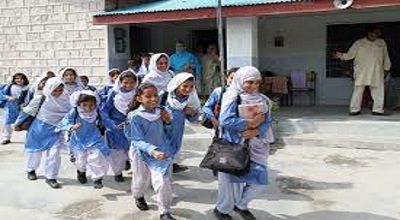Quality Education in Pakistan
Quality education in Pakistan is a complex and multifaceted issue that requires a different approach and more investment. According to the United Nations, quality education means ensuring that all girls and boys complete free, equitable, and quality primary and secondary education leading to relevant and effective learning outcomes. However, Pakistan faces many challenges in achieving this goal, such as:
- A large number of out-of-school children, especially girls, rural children, and older children,.
- Low learning outcomes and high learning poverty mean that many children cannot read and understand a simple text by the age of 10.
- Inadequate financing, limited enforcement of policy commitments, and challenges in equitable implementation.
- Some of the solutions that have been proposed or implemented to address these challenges are:
- Expanding early childhood education to improve school readiness¹.
- Providing alternative learning pathways for out-of-school children and adolescents.
- Strengthening data and assessment systems to monitor and improve quality.
- Increasing public spending on education to at least 4 percent of GDP.
- Enhancing school-community linkages to increase enrollment, retention, and completion.
Quality education is essential for human development, social progress, and economic growth. It is also a human right that every child deserves.
What are some Successful Education Initiatives in Pakistan?
Some of the successful education initiatives in Pakistan are:
UNESCO’s 2020 GEM Report
- on Inclusion and Education, highlights Pakistan’s innovative approaches to inclusive education, such as the Transgender Persons (Protection of Rights) Act 2018, the Disability Act 2014, and the inclusion-oriented data collection initiative.
USAID’s education partnership
- with Pakistan, aims to increase access and quality of education, especially for out-of-school children, by providing teacher training, school construction and repair, scholarships, policy development, and community involvement.
UNICEF’s out-of-school children program
- which supports the government of Pakistan to enroll and retain out-of-school children in formal and non-formal education, with a focus on girls, rural children, and older children.
Empowering Our Youth Program
- by the United Nations Development Programme (UNDP), introduces youth-friendly policies and initiatives, such as loan and laptop awarding schemes, internship programs, financial funds, entrepreneurship initiatives, vocational training programs, skills, and leadership training.
The 14 Routes to Better Education
- by The Guardian, suggests practical solutions for improving education in Pakistan, such as incentivizing teachers, increasing public spending, promoting girls’ education, enhancing accountability and transparency, using technology and innovation, and engaging parents and communities.
These are some of the examples of the efforts and achievements that have been made to improve the Education System in Pakistan.
